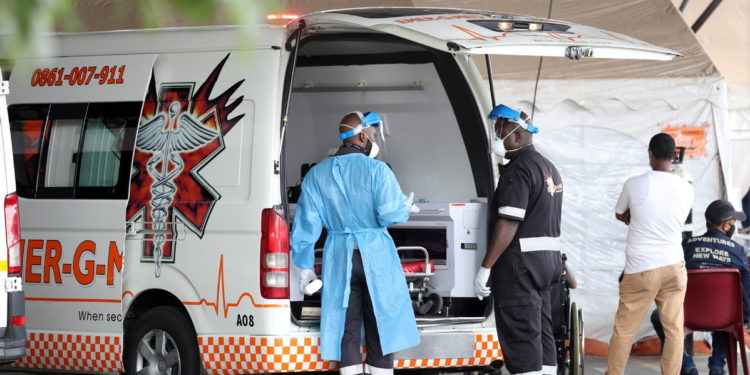The surging cases of COVID-19 fueled by increased variants that are both transmissible and more severe have raised concerns in eastern and southern African regions that have entered the cold season, normally characterized by high flu and cold cases.
Health experts have warned the cold weather that runs between June and August in the east and southern Africa regions could see an increased number of COVID-19 infections.
“Normally, viruses linked with flus and colds thrive and transmit more during the cold season, and we can expect the same to apply for coronavirus as was the case last year,” said a clinical officer based in Nairobi, who sought anonymity because he is not allowed to speak to the media.
The clinical officer projects transmission rates in Kenya and other countries experiencing cold weather to be higher compared to last year because of coronavirus variants that are more transmissible and severe.
On Thursday, the World Health Organization warned of a COVID-19 surge in Africa in the coming days and urged countries to urgently boost critical care capacity to prevent health facilities from being overwhelmed.
The UN agency said the arrival of winter in southern Africa and weak observance of preventive measures, as well as increased population movement and interaction, have heightened the risk of COVID-19 resurgence in many countries.
According to WHO data, Africa recorded a 20 percent increase in cases in the last two weeks compared with the previous fortnight.
The pandemic is trending upward in 14 countries, of which eight witnessed an abrupt rise of over 30 percent for infections in the week ending June 3.
During the week, Uganda saw a 131 percent week-on-week rise, with infection clusters in schools, rising cases among health workers and isolation centers as well as intensive care units filling up.
Due to the upsurge, on Sunday President Yoweri Museveni of Uganda re-imposed a strict lockdown that included closures of schools and higher learning institutions as well as a ban on inter-district travel, except within the capital Kampala’s metropolitan area.
This is in addition to suspension of public or cultural gatherings and conferences for 42 days apart from the sitting of the Cabinet, Legislature and Judiciary.
The number of attendees at marriage ceremonies, parties, social gatherings and burials will be limited to 20, under strict observation of health protocols.
Museveni said in the current wave, the intensity of severe and critically ill COVID-19 patients and deaths is higher than the first wave of the pandemic.
“In the previous wave, it took us 3-4 months to get to the current state of critical and severe patients, while in the second wave, it has taken us less than 2 weeks to get to the same situation,” he said.
The most affected age group in the current wave are young people aged, 20 to 39, with increasing transmission observed among teenagers.
On June 1, the country recorded its highest infection count, 1,259 in a single day, since the start of the pandemic.
Kenya’s Kisumu County, where the Delta variant was first reported, is on high alert following a surge in COVID-19 cases that have forced the county government to close its offices.
According to Professor Anyang’ Nyong’o, the county governor, new infection cases reported per week in the county rose from 168 from May 3 to 9 to 805 from May 24 30.
Nyong’o said current infections are presenting severe symptoms. He added that the mortality rate within the county has increased from an average of 12 at the peak last year to a new peak of 18 per week.
To contain spread of the disease, the county’s COVID-19 multi-agency will crackdown on public service vehicles and motorbikes that flout COVID-19 protocols.
Additionally, all home-based care patients in isolation must adhere to COVID-19 rules, and failure will be prosecuted. The public was also advised to avoid physical attendance of religious meetings.
The ministry of health has warned Kenya could experience a fourth wave in the coming weeks.
From May 24 to 31, Africa recorded 74,654 new cases, a 7 percent increase compared with the previous week.
During the week, South Africa recorded the highest number of new cases with 27,360, followed by Tunisia with 9,060, Egypt with 7,831, Uganda 3,687 and Kenya with 2,215 cases, according to the Africa CDC.
To date, Africa has recorded over 4.8 million COVID-19 infections, accounting for 2.9 percent of total cases reported globally. The continent has reported 131,000 deaths, accounting for 3.7 percent of the global figure.









